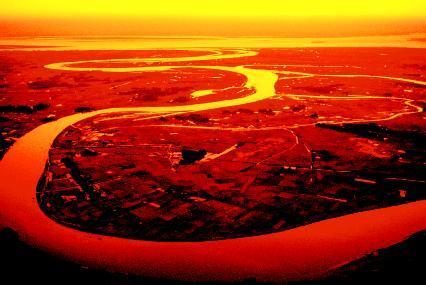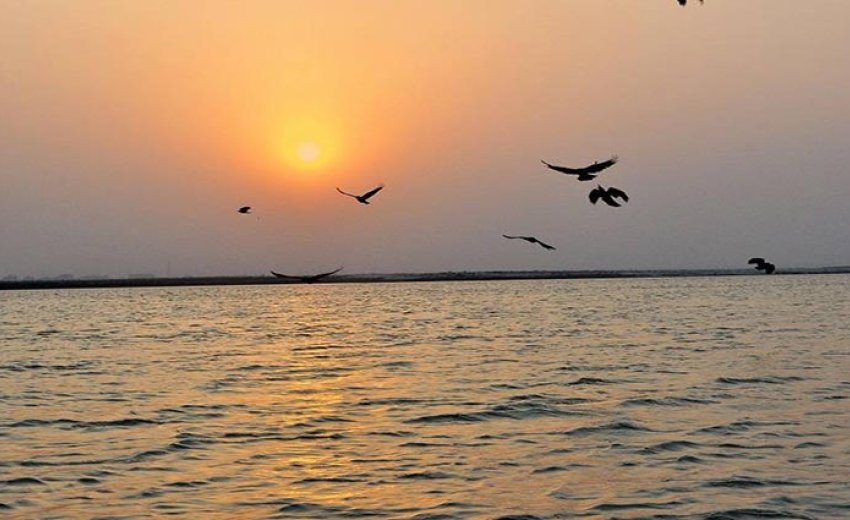 KOLKATA, India, Feb 2 (Reuters) - Rising sea levels are causing salt water to flow into India's biggest river, threatening its ecosystem and turning vast farmlands barren in the country's east, a climate change expert warned on Monday.
KOLKATA, India, Feb 2 (Reuters) - Rising sea levels are causing salt water to flow into India's biggest river, threatening its ecosystem and turning vast farmlands barren in the country's east, a climate change expert warned on Monday.
A study by an east Indian university in the city of Kolkata revealed surprising growth of mangroves on the Ganges river, said Pranabes Sanyal, the eastern India representative of the National Coastal Zone Management Authority (NCZMA).
"This phenomenon is called extension of salt wedge and it will salinate the groundwater of Kolkata and turn agricultural lands barren in adjoining rural belts," said Sanyal, an expert in global warming.
Sea levels in some parts of the Bay of Bengal were rising at 3.14 mm annually against a global average of 2 mm, threatening the low-lying areas of eastern India.
Climate experts warned last year that as temperatures rise, the Indian subcontinent -- home to about one-sixth of humanity -- will be badly hit with more frequent and more severe natural disasters such as floods and storms and more disease and hunger.
Sanyal and the department of Oceanography at the Kolkata-based Jadavpur University spotted the mangrove plants, a rare phenomenon along the Ganges river belt, where east India's biggest city of Kolkata with 12 million people lies. "We were surprised over the natural regeneration of mangroves along the river bank in Kolkata and it is worrisome," said Sanyal, who teaches in the university.
Mangroves are more typically found 100 km (60 miles) away in the swampy Sundarban archipelago spread over a 26,000 sq km (10,000 sq mile) area on the world's largest delta region.
The university said the sea had once extended up to the northern fringe of Kolkata.
"We fear what happened 6,500 years ago might recur and we have already spotted more saline water fish in the river," he said.
However M.L. Meena, a senior environment department official in West Bengal state, of which Kokata is the capital, said: "We don't think there is cause for immediate concern."
(Editing by Bappa Majumdar and Jerry Norton)

